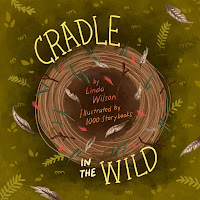 |
| Think of a story as a string of pearls. If you don't have a string, you can't put the pearls around your neck. Adapted from a quote by Marsha Norman |
By Linda Wilson @LinWilsonauthor
Can you read through your completed book without making any changes? I tried it after thinking I had finished up the basic editing and even the polishing. There couldn't possibly be anything more to "fix," thought me. Wrong. I found more changes, important changes, many changes. Throwing caution to the wind, I gave up all notions of completion and continued, alternating between rummaging through additional passes as the need occurred to me with my pinpoint-sharp #2 pencil, and then laying my book down to rest for short periods of time. My conclusion? The persistent question: When will I ever be done?
What do I need to re-think?
While in the throes of this quest I decided, what the heck, what's one more pass? I came up with: What do I need to re-think? It turned out to be the most revealing edit of all. It resulted in a title change, removal of a subplot (that was tough--it was like losing an arm--but I had to do it), addition of a character (that was fun), rearranging some of the scenes and re-checking the arcs, making sure someone or something didn't disappear in large sections of the book. I once heard an editor liken follow-through in our works to a pearl necklace. The string of pearls need to stay intact. Each character arc, and each event had to have follow-through from beginning to end. If I hadn't done that particular check, pearls of the necklace I had begun to string would have fallen off before the clasp could have been attached. Nightmares could have resulted. I could have wound up with a school daze Incomplete, only this time from an editor and not my teacher!
Take one more look
• Go back to the theme you prepared before or during the writing. Make sure the main theme shines through and ask yourself: Do the minor themes bolster the main theme?
• Check the structure one more time. Is it solid?
• Does each character have an arc? Each story part introduced have follow-through to the end? Follow each one all the way through to make sure.
• Is your main character's flaw/need evident in the beginning and satisfied/solved from what she/he's learned by the end?
• Have you done a scene check to make sure there isn't any section that might work better elsewhere?
• Is there any character or scene that doesn't move the story forward?
• Is there anything to add to strengthen any part, or any weak part to delete which will strengthen the story?
• Is description kept at a minimum (in a children's story)? Is the story told mostly through dialogue and action?
• If it is a mystery, make a list of the clues, red herrings and reveal to make sure everything is covered.
• If your book is written in close third person, have you added enough thoughts by your main character? Heightened the tension enough? Are the stakes high enough?
• Advice from Jon Bard and Laura Backes from the website, Children’s Book Insider: try going back and forth from writing on paper to writing on computer. They say a different part of the brain is used each way.
• Do one last fact check.
If you grow weary of so many revisions, give your story a rest and come back to it later. One of my writing instructors once told me, you don't write a book, you re-write a book. When at first I thought I was done, I had to disengage from disappointment when finding so many glaring errors. This must be the armor people talk about that writers must grow and wear, and perhaps why people admire authors so much. For the fortitude and single-mindedness it takes to do the seat-time, on and on, until we are finally satisfied with the finished product, whatever it takes. Being sure of your work is a must if a writer wants to produce a sparkling, page-turning, humdinger of a book!
Introductory photo: Courtesy of wondoropolis.org.
 |
| My next picture book, Cradle in the Wild, will be out soon! |
Linda Wilson writes stories for young children. Visit Linda at https://bit.ly/3AOM98L. Click the links for free coloring pages and a puppet show starring Thistletoe Q. Packrat. While you’re there, get all the latest news by signing up for Linda’s newsletter.
Find Linda’s books at Amazon Author Page.
Connect with Linda: Facebook, Twitter, Pinterest, Instagram



 she
she 


